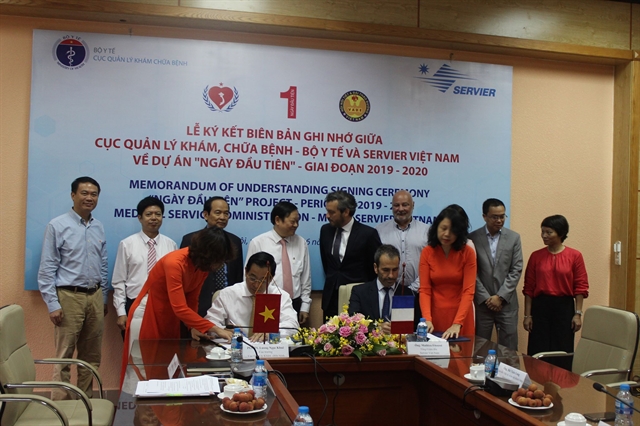 Society
Society


|
| Representatives of the Medical Services Administration and Servier Việt Nam sign the agreement setting up the Ngày đầu tiên (The first day) project on high blood pressure and diabetes prevention on June 18 in Hà Nội. — Photo MSA |
HÀ NỘI — The health ministry’s Medical Services Administration (MSA) and French pharmaceutical firm Servier Việt Nam will collaborate to improve blood pressure monitoring and diabetes control in Việt Nam.
The agreement, signed on June 18 in Hà Nội, established a two-year project entitled “Ngày đầu tiên" (The first day).
MSA director Lương Ngọc Khuê said the agreement marked an important milestone in the prevention of non-communicable diseases (NCDs) in Việt Nam, especially diabetes.
The project aims to improve awareness among physicians, patients and their families of NCDs, helping patients detecting diseases at an early stage and develop healthy lifestyles to controlling their diseases in the long term.
The project will also collect data from patients, helping to provide the health sector more information about the Vietnamese people.
As part of the push to raise awareness, the project will work to improve ngaydautien.vn, a website on preventing non-communicable high blood pressure and diabetes. The project will also include a push to strengthen the early detection system and develop around 200 consultation centres at hospitals throughout the country.
MSA and Servier Việt Nam will also work with medical facilities to train medical staff on how to detect the diseases and help patients manage them.
In 2017, Việt Nam had around 3.5 million people living with diabetes and this figure is expected to continue to increase. Half of all people living with diabetes do not know they have it. Early diagnosis can help patients receive early care and treatment, avoid complications, better control the disease and reduce treatment costs, according to the International Diabetes Federation.— VNS




